'Forgotten Scot' who inspired Tolkien and CS Lewis
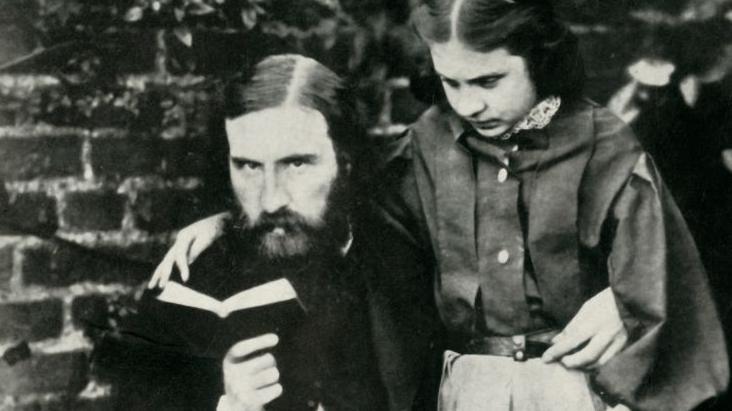
George MacDonald with one of his daughters
- Published
This year marks 200 years since the birth of George MacDonald, whose fantasy writing and ideas on faith inspired literary greats including JRR Tolkien and CS Lewis.
MacDonald, who was born in Huntly and grew up on a farm, wrote more than 50 books.
They included children's fairy tales which were read by Tolkien - author of The Hobbit and The Lord of the Rings - when he was a boy.
Some of MacDonald's work remains in print today, but Amy Miller of Aberdeenshire Museums Service said the Scot had been largely forgotten.
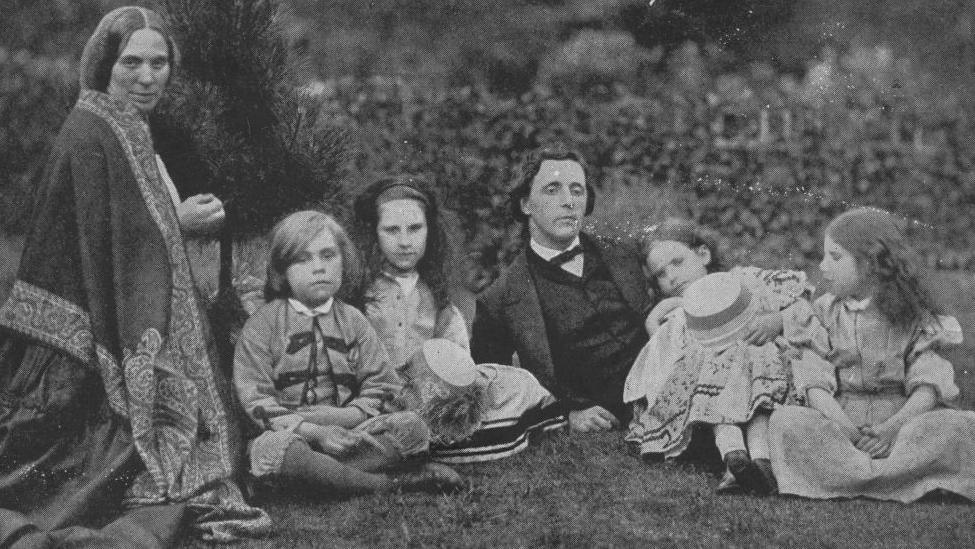
Alice's Adventures in Wonderland writer Lewis Carroll with George MacDonald's family
MacDonald was born in 1824 in Aberdeenshire, though his family were originally from the Highlands.
John McNeill, of the George MacDonald Society, said: "He was born in a house just off the square in Huntly. It's a dental practice today.
"He moved out of Huntly when he was two and was brought up on a farm.
"He was a farm boy."
MacDonald was interested in nature and science and won a bursary to study natural philosophy at the University of Aberdeen.
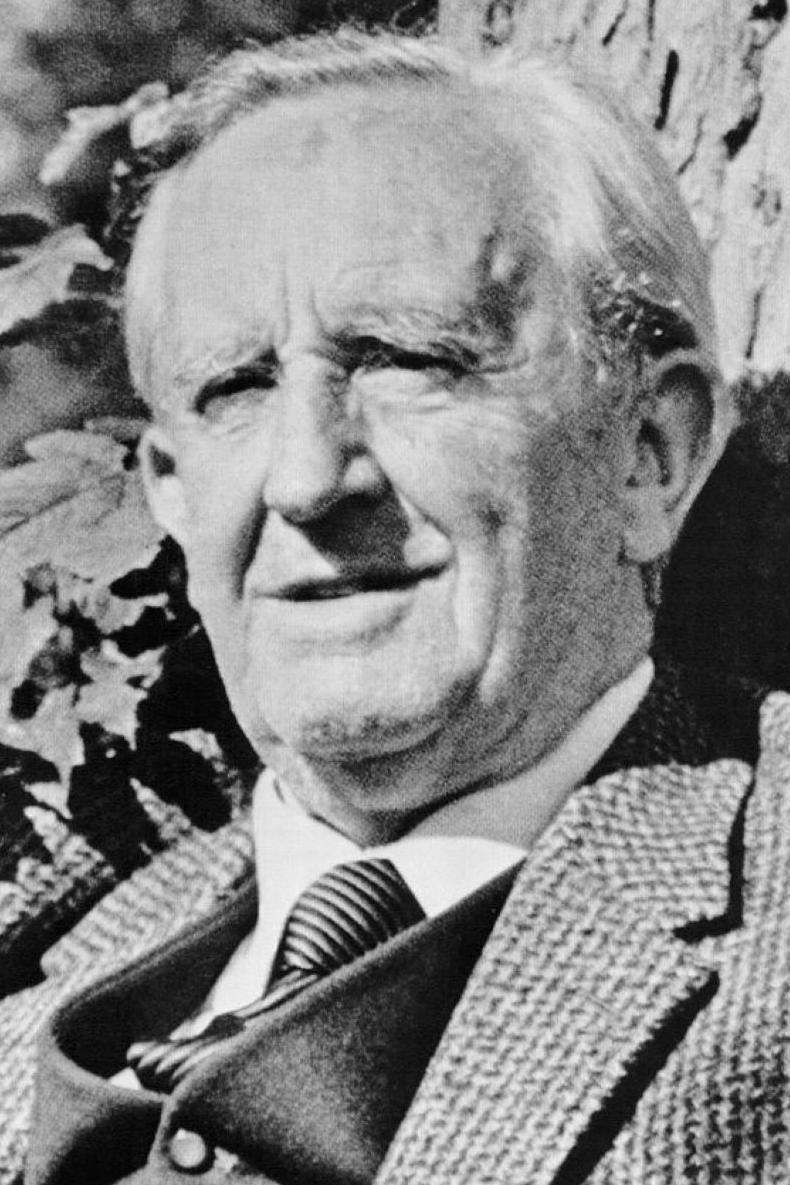
JRR Tolkien, whose works include The Hobbit and The Lord of the Rings, read MacDonald's children's stories
To help fund his university studies, MacDonald took a job cataloguing books in a castle's library.
Mr McNeill said it remained a mystery which castle it was, but it has been suggested it might be Dunbeath or Thurso Castle in the Highlands, or Fordyce Castle in Aberdeenshire.
The library included works by German writers, including fairy tales, and Mr McNeill said these works had a "massive influence" on the young writer.
After graduating, MacDonald became a tutor in London before training as a minister and taking charge of a church in Arundel, West Sussex.
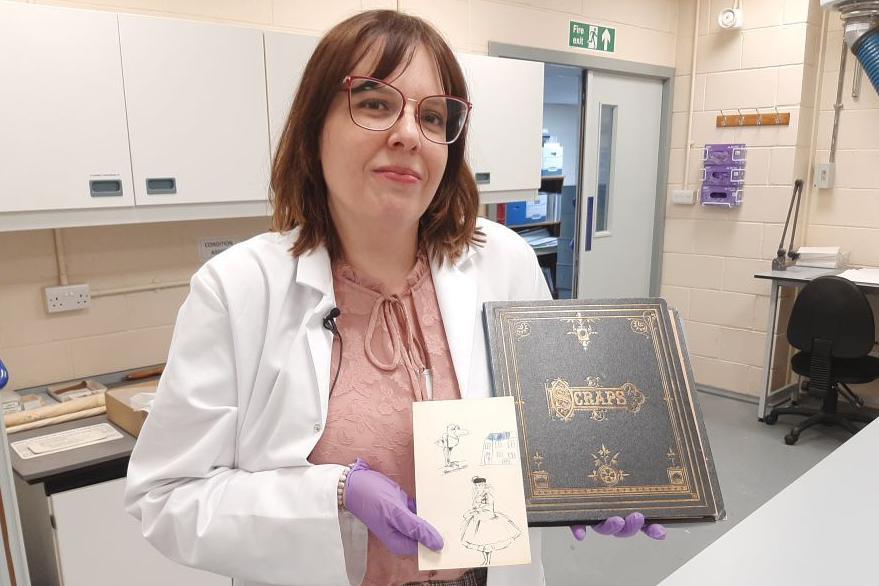
Amy Miller, of Aberdeenshire Museums Services, said MacDonald had been largely forgotten
But Mr McNeill said some of MacDonald's ideas on faith were unorthodox for the times and sometimes put him at odds with others.
He eventually resigned as a minister after differences with some members of his congregation.
He scraped a living writing and lecturing in literature to support his wife and their 11 children.
Poet Lord George Gordon Byron's wife, educational reformer Anne Milbanke, was among famous figures who encouraged MacDonald in his writing.
He was also a friend of Lewis Carroll, creator of Alice's Adventures in Wonderland, while he and his family socialised with American writer Mark Twain's household on both sides of the Atlantic.
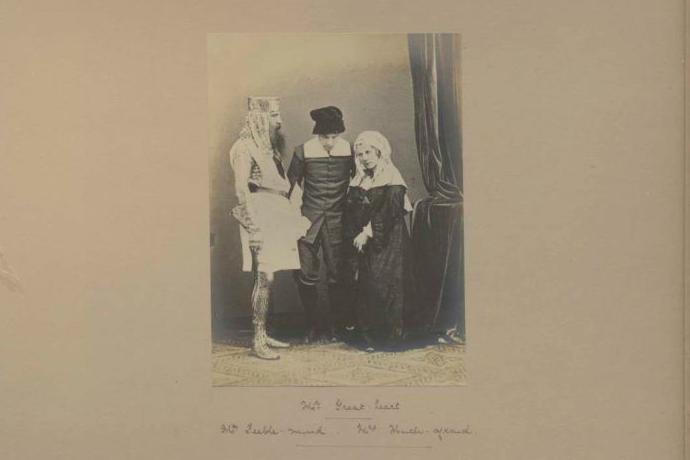
A photograph of George MacDonald as a knight in a theatrical performance
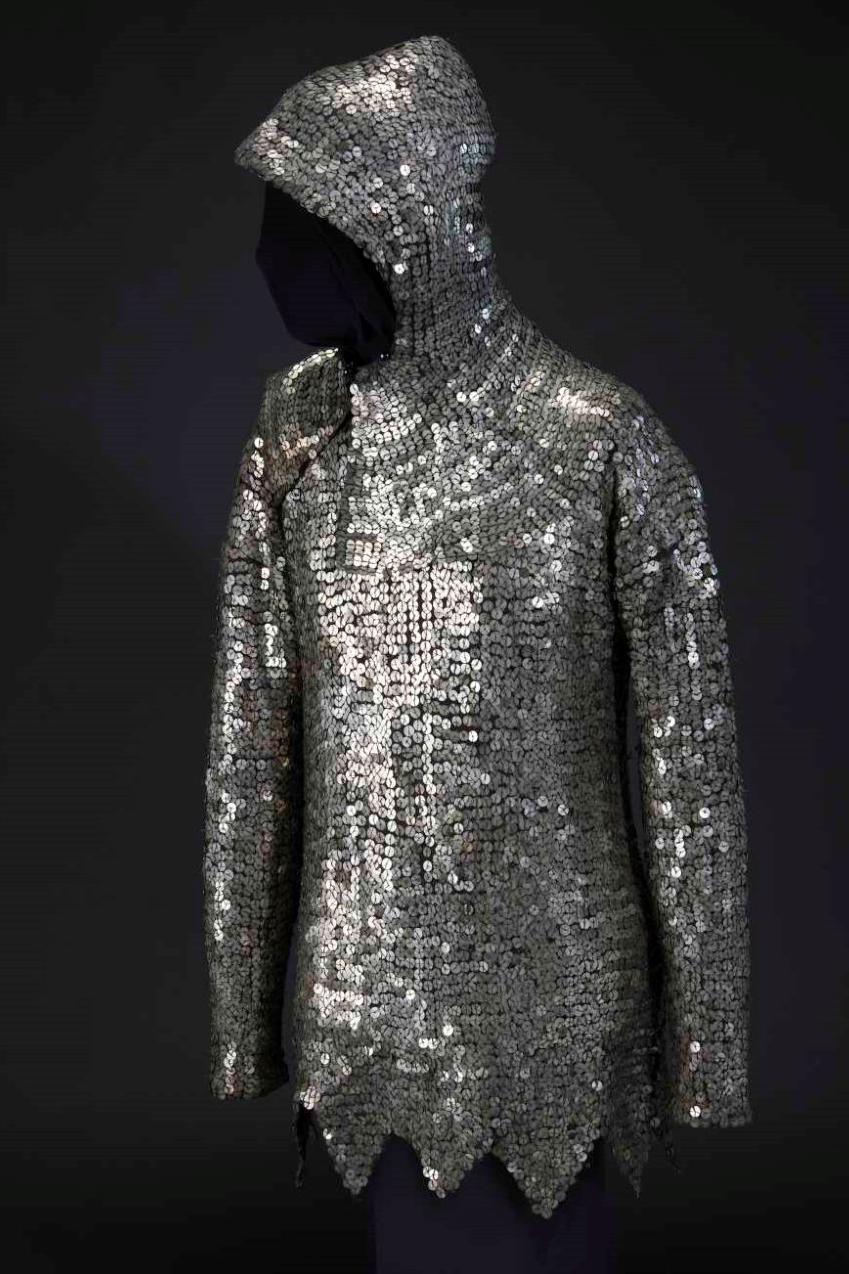
George MacDonald's knight costume
Read Ruairidh MacLennan's story on BBC Naidheachdan
- Published9 March 2024
MacDonald's own work was highly influential.
Tolkien read MacDonald's children's books when he was a boy, including the fairy tale The Princess and the Goblin - a tale of good versus evil.
Tolkien would later criticise MacDonald's work for being moralising.
CS Lewis, who wrote The Chronicles of Narnia, was another fan of the Scot and described him as his "spiritual master".
Mr McNeill said MacDonald had a talent for creating myths, and was also supportive of other writers.
He said: "Lewis Carroll took his Alice's Adventures Underground manuscript to MacDonald's home and it was read to MacDonald's children.
"They loved it so much it encouraged Lewis Carroll to publish it."
Some of MacDonald's manuscripts along with a knight's chainmail costume made from sequins that MacDonald wore during family theatrical shows are held in Aberdeenshire Museums Service's collections.
Museums development coordinator, Amy Miller, said: "I think he used fantasy as a tool to talk about moral truths and Christian ideals that he believed in.
"His stories appealed to adults and children."
She added: "He's not well-known and that's the real shame of it given how influential he was."